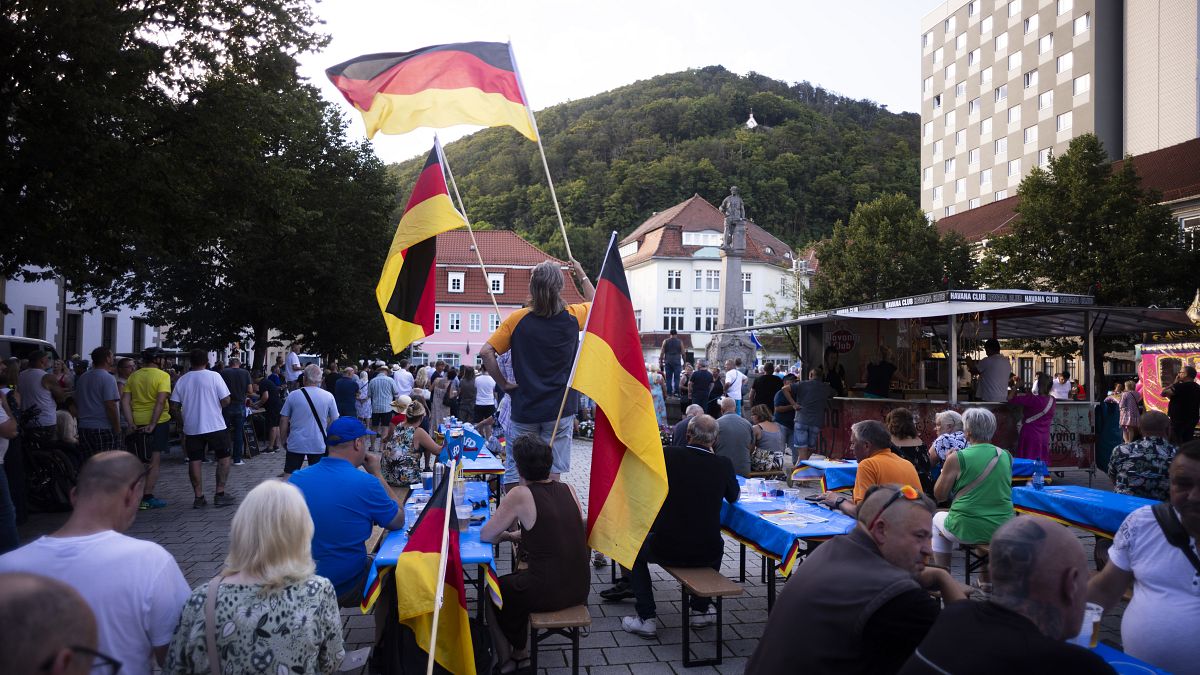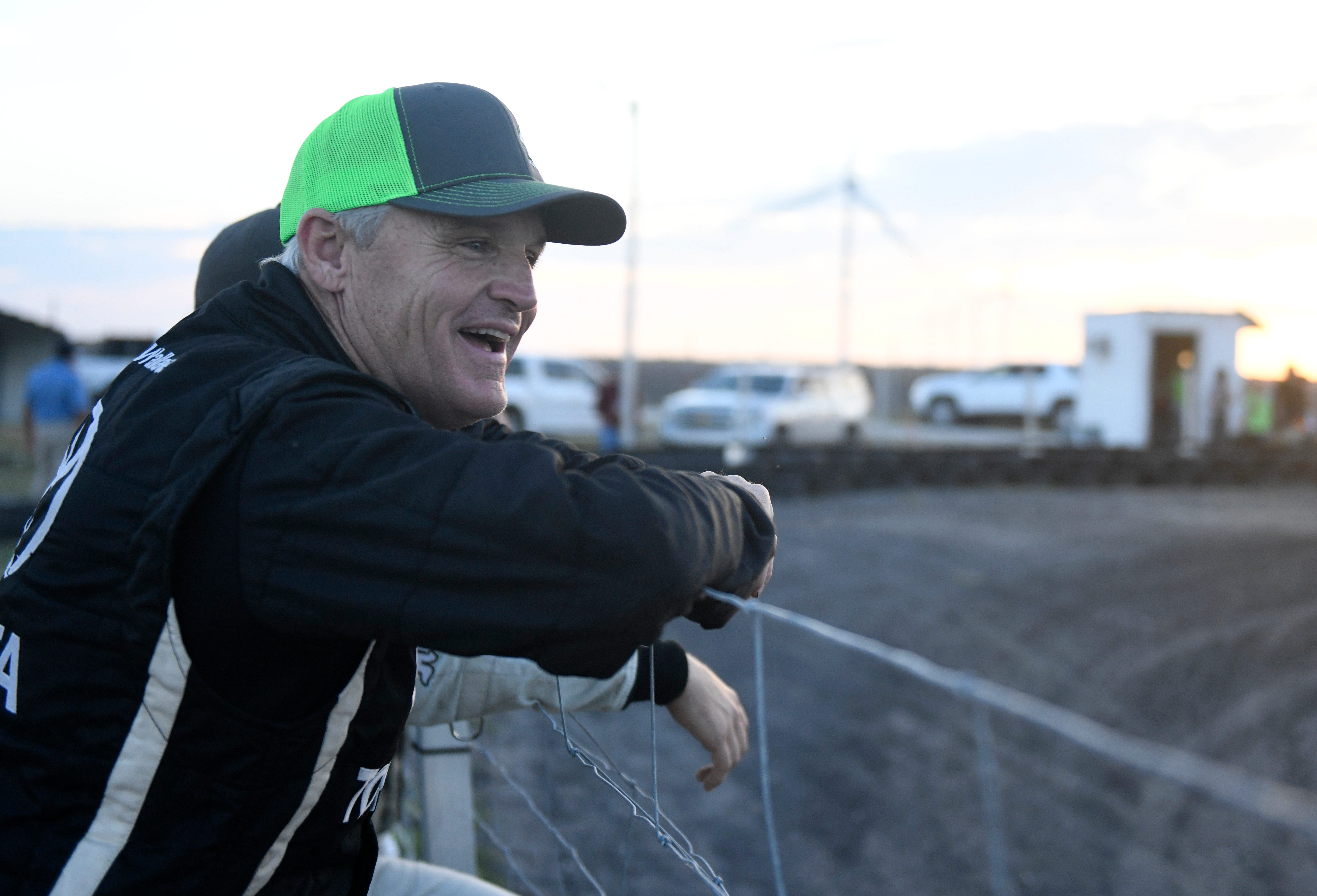Bussiness
Fears grow in Saxony as German state elections approach

Young people are leaving Germany’s most south-eastern city of Zittau in droves. Houses are also abandoned in the city of Görlitz in Saxony, that sits on the border with Poland. But what impact could the September elections have on residents?
Behind the picturesque old towns and cobbled streets of the east German Saxony cities of Zittau and Görlitz lie decaying, abandoned houses.
Alongside the boarded windows, old German script etched on the walls reveals the businesses that used to inhabit the now-vacant buildings: printing houses and a fish house.
The forlorn edifices are the casualties of an exodus of tens of thousands of residents who have poured out of the city in search of a better life in larger settlements, such as Dresden or Leipzig; cities that offer functioning mobile phone connections and work opportunities.
These cities are also in the state of Saxony — the home of large numbers of supporters of the far-right Alternative for Germany (AfD) party which is set to win big in upcoming state elections.
According to recent polls, the AfD, alongside the far-left party Sahra Wagenknecht Alliance (BSW), could be about to overtake the centre-right Christian Democrats (CDU) in Saxony in the vote on 1 September. The CDU, under Minister President Michael Kretschmer, has governed the state for the past seven years.
But while support for the AfD may be surging among many, things look different for local businesses: a recent study, carried out by the Cologne Institute for Economic Research, found that one in every two German businesses is worried about the rise of the AfD.
A vicious circle
Tuomo Neumann was born and raised in Zittau and is a local business owner. He runs an advertising agency, a skate and graffiti shop, a vegan food truck and is about to open a bistro. He also was a candidate for left-wing Die Linke in Saxony’s 2019 elections but didn’t run again this year.
He told Euronews that many young people have moved away to bigger cities after finishing school because there’s very little industry, which makes it hard to find apprenticeships
“I made the decision to stay back then,” he said. “The problem is, if everyone leaves, there will be nothing left. After finishing my training, I looked for what I could do and started my own business.”
The problem transcends sectors — doctors are retiring, with no one to replace them, Neumann said, leading to people feeling “trapped” and “dissatisfied”.
“There are parties that want to improve healthcare, raise incomes, and enhance infrastructure, but they aren’t getting elected because people are dissatisfied,” he said.
There lies a catalyst for the rise of the far-right, which routinely participates in anti-government demonstrations across the east of Germany every Monday, including the neighbouring state of Thuringia — another AfD stronghold.
However, it’s a vicious circle. The violence often associated with the far-right has long acted as anathema to Zittau’s young people, which adds to their reasons for fleeing the city as soon as possible in pursuit of pastures news, according to Neumann.
After Germany was reunited in 1990, the population of Zittau was around 38,000, but it’s now around half of that.
With fewer people in the city, business stagnates and dissatisfaction rises, fuelling more anti-government fire and violence.
Euronews approached several AfD politicians for comment whilst in Saxony but did not receive a response.
“The entire youth experience was shaped by left versus right,” Neumann told Euronews. “And sometimes, it wasn’t even about left versus right, but just that there were neo-Nazis who had a house here.”
“My youth and that of my friends were marked by a lot of violence,” he added. “We had to think about where we could walk at night, where we could hang out without the risk of being attacked and beaten up.”
Neumann said that the worst years have passed but that the far-right marches every Monday always strike a harsh tone and are prone to racist attacks. Hundreds of people gather on the market square and chant racist slogans, he explained.
“In my view, this makes the city very unattractive,” he said. “I understand why people, especially young people, wouldn’t want to stay here.”
The solution lies in making sure people suffer the consequences of their violent actions, according to Neumann, who urges local authorities to take a tougher stance — including against people in their own ranks.
“There are right-wing groups within the police, and there have been racist attacks, like the racist murder in Dessau,” the business owner said. “A lot of things are just brushed under the rug, and then people realise too late that something should have been done. When it’s too late, everyone acts shocked and tries to save what they can.”
Statistics show that political violence has been on the rise in Germany over the past few years.
“I attended a rally against a planned refugee shelter,” Neumann said. “I stood on the sidelines, doing research and monitoring the situation. Then representatives of the AfD from the district council, actual elected officials, insulted me, harassed me, and spat on me. I filed a complaint because the police were standing right next to me, but there was ‘no evidence’.”
The AfD candidate in Görlitz, Sebastian Wippel is a police commissioner. His office declined an interview with him when approached by Euronews due to his full schedule.
How could the elections shape Saxony?
As a business owner, Neumann is afraid of what could happen after Sunday’s election. “There’s a real fear that these two parties, one from the far-left and the other from the far-right, might form a coalition,” he said.
Both the AfD and BSW advocate for halting weapons deliveries to Ukraine amid Russia’s war of aggression, negotiating peace with Moscow, watering down climate change policies and a tougher stance on immigration.
Neumann says the coalition could be “dangerous for the region”.
“Through our business, which is very youth-focused, we deal with a lot of initiatives and organisations that rely on grants or the university,” explained Neumann, who prints t-shirts and bags for school children, which relies on funding. “We’re all dependent on public funds, and no one knows what will happen. Will they still get funding, or won’t they?”
However, BSW Saxony election campaign leader Jens Hentschel-Thöricht says that the party is “advocating for the strengthening of culture and education”.
“Here in the Görlitz district, we see that the theatre is severely underfunded, and we will push in the state parliament to strengthen cultural education and education in general,” he said. “We have a teacher shortage of over 10% in schools, and we will fight to make that a thing of the past.”
This may not be enough to entice the despondent citizens in the east of Germany, according to Neumann, and the “parties that could actually satisfy people—offering higher wages, more jobs, more social responsibility, better hospitals—they aren’t being elected.”
Die Linke and German union Ver.di have been advocating for a rise in the minimum wage to €15 per hour. Nevertheless, Die Linke, the Social Democrats (SPD) and the Greens could struggle to win more than the 5% threshold of votes needed to enter the state parliament, according to recent polls.
The situation is such that many people in the east are still romantic about what life was like in the former German Democratic Republic (GDR) before it reunited with West Germany in 1990.
Indeed, Neumann said there is still a vast difference between Germany’s east and west.
“The gap between east and west, just in terms of earnings, is huge,” he said. “Those who stayed here are paid much less for the same work, or even for harder work. I can totally understand that people are disappointed, feeling left out, and then engage in nonsense, like voting for neo-Nazi parties.”
Far-right even popular among the fortunate
Over in Görlitz, another town close to the Czech and Polish borders, the far right and left could also overtake the CDU in the upcoming election.
However, the sentiment among local business owners appears to be the same as that of their neighbours in Zittau.
Tour guide and author Frank Vater told Euronews that populist parties won’t solve the region’s underlying issues.
“The AfD’s rhetoric is pure populism — there’s nothing behind it, yet people are drawn to it because it sounds simple at first,” he said.
“What bothers me even more — and maybe you could call it fear — is that other parties, like the major ones such as the CDU, respond to such things by going along with them and not opposing them.”
Vater said the mainstream parties, including the CDU, need to stay strong and not get sucked into adapting far-right policies because that’s what they think the people want.
“Reacting to populism in the same way as others, trying to shift voters from left to right or to pull them onto their own side, is dangerous,” he said. “If there’s no clear stance against fascism, that’s where the danger lies.”
Vater was more positive about Görlitz’s future, however.
There were 70,000 residents in 1990 after the wall came down and Germany reunited, but then it dropped to 50,000.
“But now, with all the changes you can see, the city has become much more attractive,” Vater said. “The population has risen again. We’re now often at around 57,000 residents, so it’s been a positive development.”
However, the city’s apparent recent good fortune makes its unrest and support for the far-right even harder to understand, according to the tour guide.
“There are regions in this country where things are much worse,” he said, adding that he often recognises participants at the Monday demonstrations, people he says aren’t doing too badly.
These people appear to just “follow along” with what others are doing, in a situation reminiscent of what Germans “learned about in history class, before 1933”, Vater explained.
“Not that everything runs smoothly, there’s plenty to do in this country, no doubt,” he said. “But compared to many others, we’re doing really well.”
Nevertheless, anger towards the federal government is influencing local politics.
“The real issue isn’t whether it’s left, green, or whatever colour. The problems we’re trying to solve today have been building up over years, and they have nothing to do with the current politics in Berlin,” Vater said.
“But it’s being sold as if it’s the fault of the current government, which leads to anger towards the left, the greens, and others,” he added. “And foreigners always seem to get thrown in the mix. In reality, these problems are solvable and not nearly as bad as they are made out to be.”
Despite this, certain state politicians do not believe that local and federal issues are too distinct, and want to use September’s vote as a way to influence policymakers in the capital.
The BSW’s Hentschel-Thöricht said that the party believes that a strong result in Saxony will also send a strong signal to Berlin about its desire for peace.
“It shows that we want dialogue instead of war and that we reject the delivery of weapons to Ukraine and other conflict zones,” he said. “I think that’s the strongest message we can send here and the kind of impact we can have.”
Vater said individuals need to take more responsibility in solving issues, rather than blaming politicians or immigrants, as is often peddled by the far-right.
He said that people may arrive in Germany from Syria or Afghanistan for a whole host of reasons that aren’t too dissimilar to those that prompted East Germans to head to West Germany before reunification.
“Some were really struggling, some were genuinely persecuted, while others just wanted a better life. But that is the wish we all have, isn’t it?” he said.
“I remember the last two or three years in the GDR. So many people crossed the border to the West to live a better life,” Vater said. “They weren’t really suffering here, but they wanted something different. And in a way, that parallels what’s happening today.”


%20copy_Big.jpg)







